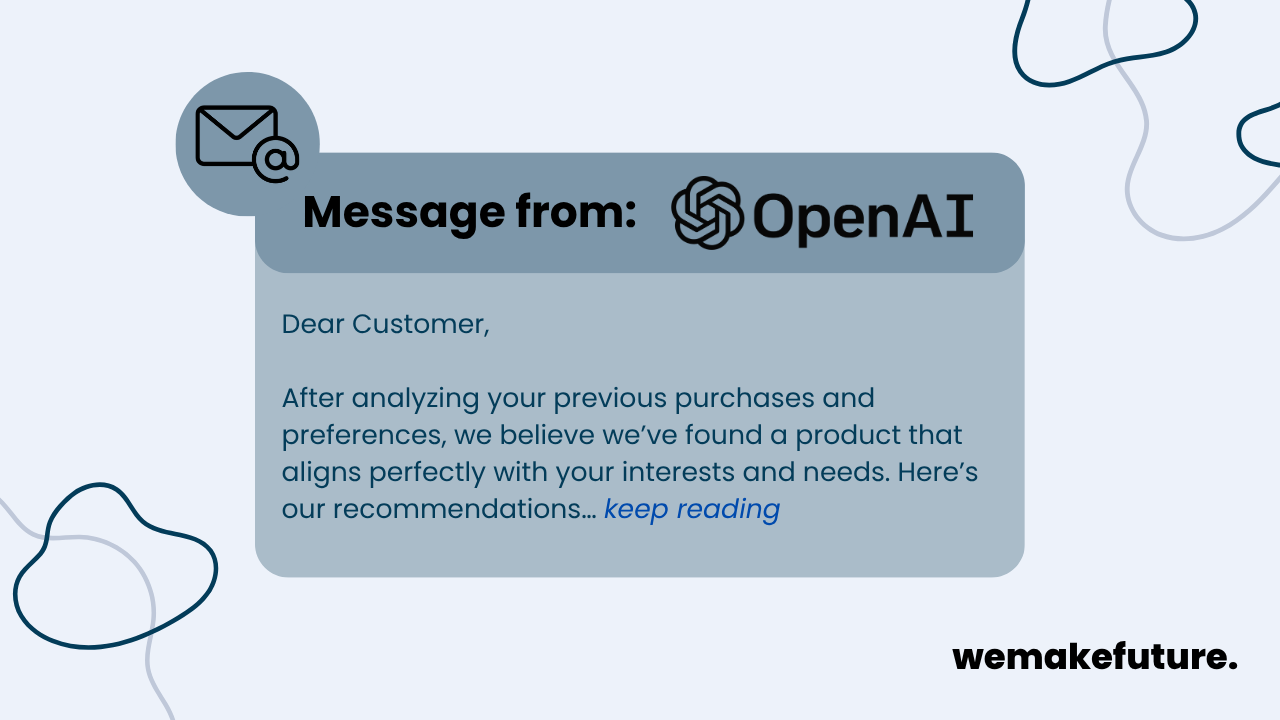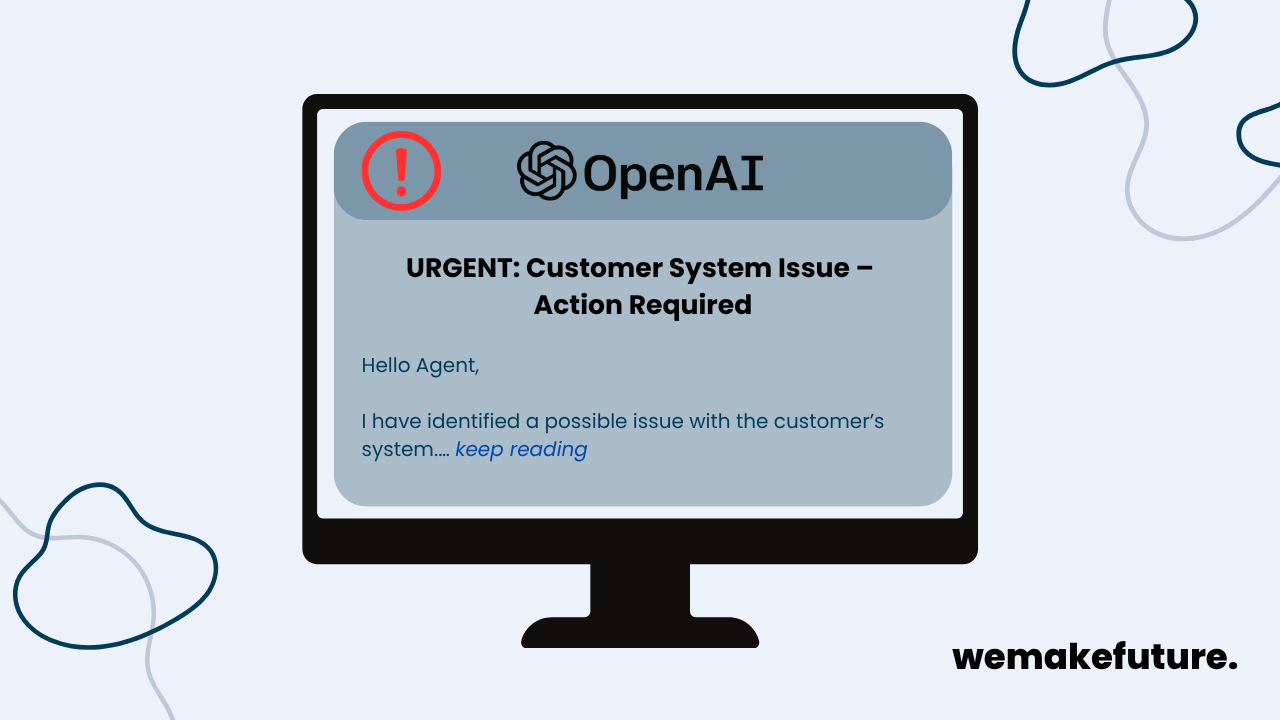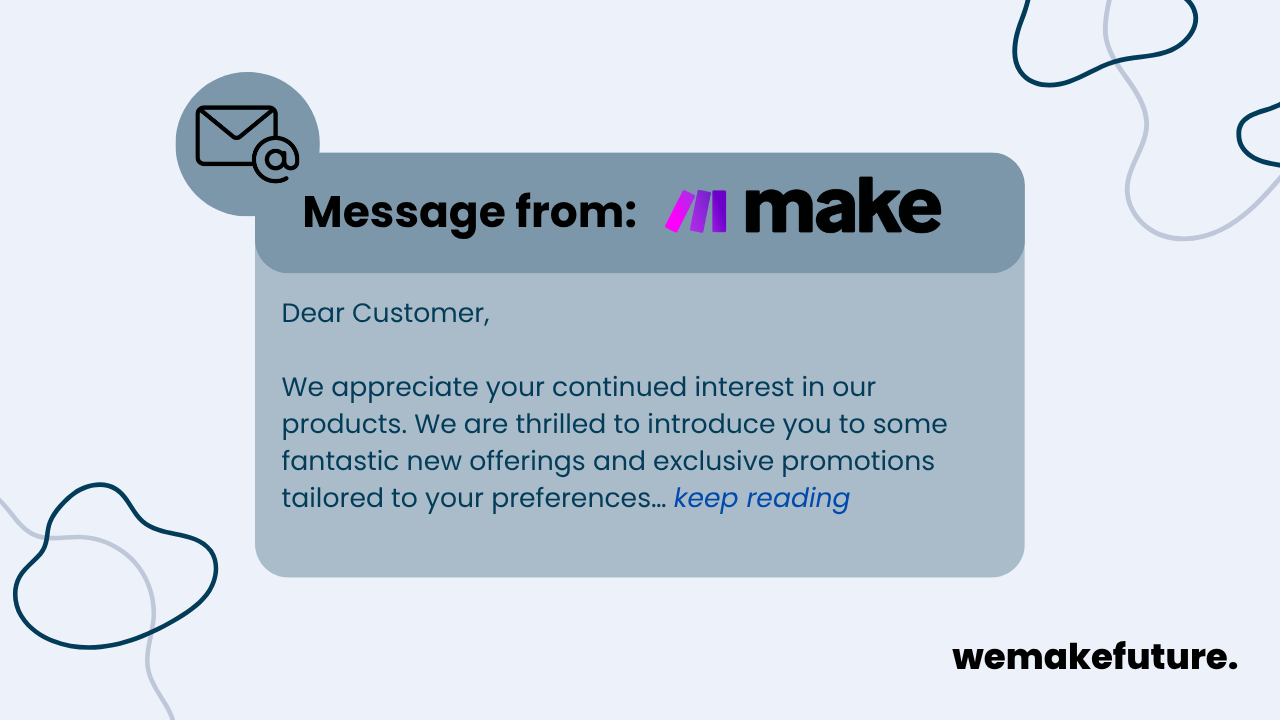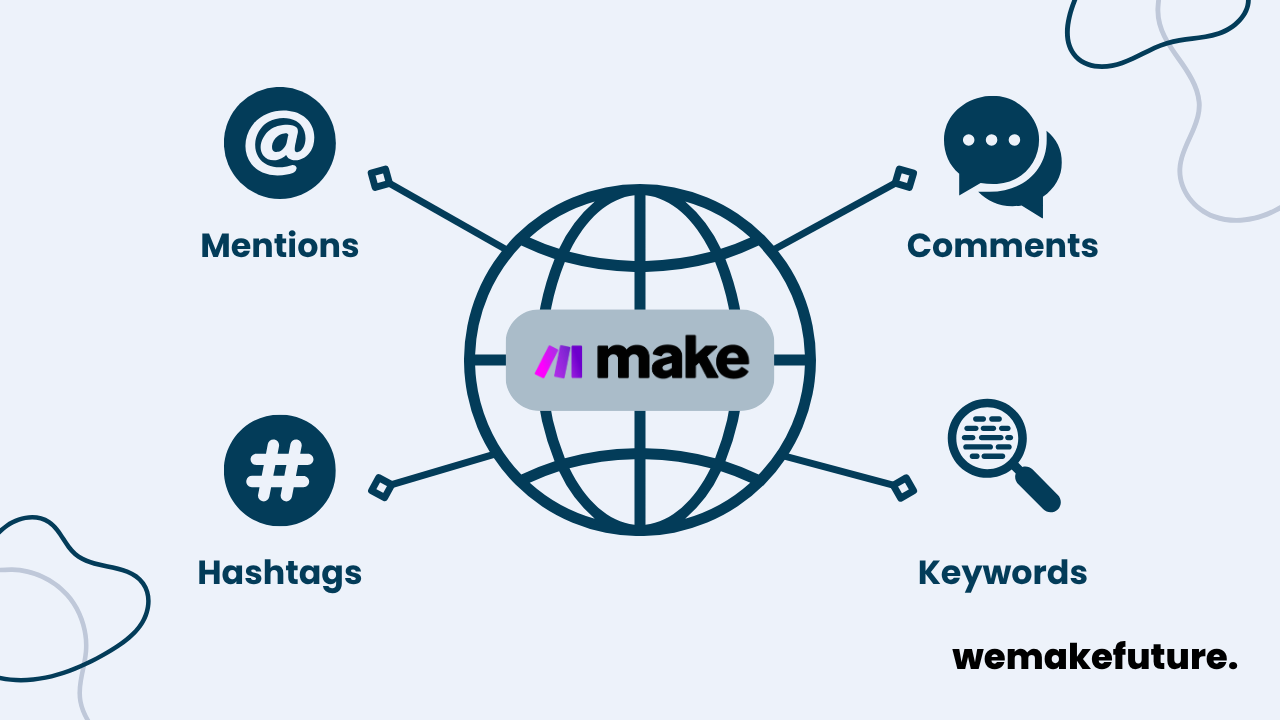
Customer support has evolved dramatically, shifting away from sole reliance on human interaction. Now, artificial intelligence (AI) and machine learning-powered automation technologies are currently reshaping how companies engage and assist their customers. The days of navigating extensive FAQs or waiting on hold for an available agent are quickly coming to an end.
OpenAI and Make employ automation to help you simplify customer service, delivering prompt and personalized assistance while elevating customer experience through AI-driven solutions. Both companies leverage automation to streamline processes, enhance response times, and ultimately cultivate a more rewarding and efficient customer service ecosystem.
It all starts with the collection and analysis of extensive client information, including past purchases, browsing patterns, and personal preferences. After processing this data, OpenAI's machine learning algorithms create distinct consumer profiles that indicate trends and preferences.
Once these profiles are established, OpenAI develops a recommendation engine that uses them to make product recommendations based on the interests of each consumer. This recommendation engine can be easily implemented on websites, emails, and chatbots, creating a more personalized customer experience.

This automation uses AI-driven chatbots or email sequences to assist new users in setting up and using a product or service. For example, an AI-powered chatbot can start a discussion when a client logs into a company's platform for the first time, extending a warm welcome and providing step-by-step directions on how to get started.
A flawless onboarding experience is guaranteed by the chatbot's ability to offer video tutorials, respond to frequently asked queries, and help with account creation. As an alternative, personalized onboarding instructions and advice that are tailored to the customer's individual requirements and preferences can be sent via an automated email sequence.
This method entails regularly keeping an eye on consumer behavior and product usage to spot possible issues before they become severe. The algorithms used by OpenAI execute real-time analyses of data such as error logs, user interactions, and performance indicators.
The system can automatically send alerts or notifications when anomalies or patterns that are suggestive of problems appear. These alerts can then trigger automated system or customer support personnel to contact affected customers and provide rapid solutions, frequently before they are even aware of the problem.

This entails analyzing customer support tickets continuously with AI algorithms to identify knowledge gaps in the available self-help materials. The technology developed by OpenAI can classify and examine customer service requests to find recurrent themes and questions.
AI can automatically advise writing new articles or updating old ones to address these problems when it notices a pattern of queries that is not sufficiently handled in the existing knowledge base. This proactive strategy guarantees that the knowledge base stays updated and applicable, encouraging users to find solutions on their own and lowering the number of support request received.
To produce and deliver automated emails that are relevant to each customer's interests and behaviors, this strategy uses consumer data and AI-driven algorithms. The AI system at Make regularly gathers and examines client information, such as purchase history, browsing habits, and platform interactions.
Based on this data, AI categorizes or divides clients into multiple groups or classes, such as "new customers", "frequent shoppers", or "interested in specific product categories". The system may then produce automated email campaigns that send tailored content, product suggestions, promotions, and recommendations for each consumer category.

These portals functions by utilizing a well-organized knowledge base and AI-driven features. Make can create an intuitive self-service portal with a strong search function that can process natural language queries.
Customers can simply type their inquiries or problems into the AI-driven search, which will then show relevant articles, frequently asked questions (FAQs), and troubleshooting manuals. The portal may also include interactive features like chatbots or virtual assistants that help clients through challenging tasks and provide immediate assistance.
It entails tracking and analyzing user comments, mentions, and feedback across numerous social media platforms using AI. Make's AI engine constantly searches social media platforms for brand mentions, comments, and important keywords.
It may automatically flag and categorize encounters when a client mentions the company or voices a concern. The appropriate customer service teams or automated systems can then be instructed to act by predefined answers or alerts.

This strategy involves classifying and assigning customer support tickets to the most qualified agents or teams using AI. Make's AI system promptly evaluates the content and context of a support request after it is submitted by a customer through any communication channel.
It can examine the problem's nature, the customer's background, and the level of specialized knowledge to fix it. The AI adds a category or tags to the tickets based on this analysis and routes it to the correct support team or agent with the necessary skill set.
This section explores how AI is evolving inside customer service, providing insights into the future promising developments and potentially game-changing opportunities.
Curious to learn more? Explore our blog to learn more about OpenAI and Make's remarkable capabilities and how they are setting the pace in the intriguing world of automation. Or contact us for a free consultation now!
Stay up-to-date with us.